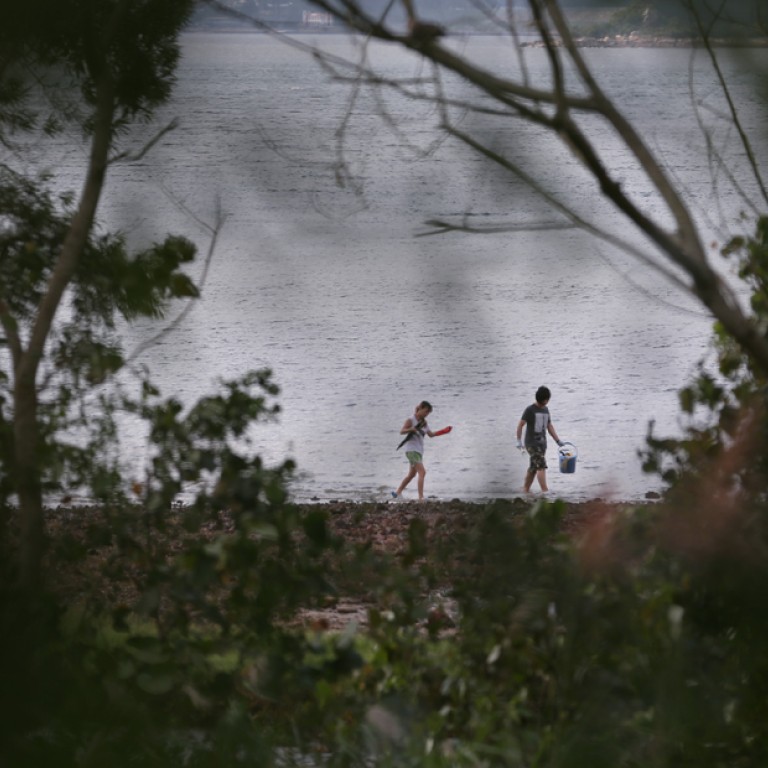
A holiday by the sea, but with one big difference
It was a hot and humid summer - filled with tears, fears, laughter and poker games at a three-storey apartment block by the sea in Sai Kung. About 30 dissidents who were there will never forget their experience there.
It was a hot and humid summer - filled with tears, fears, laughter and poker games at a three-storey apartment block by the sea in Sai Kung.
About 30 dissidents who were there will never forget their experience there.
Their time in the safe house after fleeing the mainland is a bittersweet memory, though.
They were on the frontlines in Tiananmen Square. Then they were stuck in the British colony with their comrades, leaving behind families and friends and unsure if and when they would start a new life overseas. When would they lose the mainland security officers who were chasing them?
Watch: Key facilitator of Operation Yellow Bird reveals how Chinese activists entered Hong Kong after June 4 crackdown
The three-storey building in Sai Kung's Nai Chung was one of the biggest shelters that "Operation Yellow Bird" operated for the activists as they awaited political asylum in the West.
Among those who stayed there was workers leader Zhao Hongliang and Xiang Xiaoji, the convenor of the student delegation that spoke with leaders before the crackdown.
With so much danger and uncertainty, a Hong Kong businessman known to many as Tiger tried to soothe the fugitives' fears.
One of Tiger's compatriots, the Reverend Chu Yiu-ming, ordered that all doors stay locked. "So I wanted to find ways to entertain them," Tiger remembered.
He brought his television to the shelter and invited the guests to share their stories. He organised cooking competitions, pitting southerners against northerners, rice versus noodles.
Then the group played poker. "Losers were punished, such as wearing extra clothes, drinking water or crawling under the table," he recalled. "We tried small things to make their life enjoyable."
Weeks later, Tiger allowed the group to spend time on the beach.
To boost morale, Tiger sometimes organised excursions to Ocean Park and hiking trips with the help of other volunteers.
Alcohol, cigarettes and love affairs were supposed to be banned - per orders of Reverend Chu - but Tiger turned a blind eye.
"It was tough to ban writers and artistic people from smoking and drinking. I secretly gave them what they needed," Tiger said.
"Reverend Chu ordered them not to start love affairs because it would complicate their asylum application if they had children. But I was soft-hearted."
Beijing student leader Cheng Zhen and Hongkonger Mok Wai-keung, a helper at the shelter, met and fell in love.
Chu forced them to separate. Mok would wait outside the shelter for Cheng.
"Eventually I let Cheng out to meet Mok by asking her to take out the rubbish," Tiger said. The couple finally moved to the United States together.
Watch: Exclusive clip of mainland activists’ life in Hong Kong after being smuggled out of China in 1989
Some of Beijing's most wanted student leaders were allowed to board a plane the day they arrived in Hong Kong. Others had to wait months, sometimes years, before their asylum applications were approved.
Some would become depressed seeing their allies leave one by one. "They would get emotional whenever someone left," Tiger said.
When Xiang Xiaoji left, Tiger said he asked the Beijing student leader to leave by the back door and pull his luggage with a rope from the rooftop so others wouldn't know.
Despite spending almost a year living with the fugitives in the countryside, Tiger never told his family about his role until recently.
"I told my family I had to work on the mainland and gave my children mainland souvenirs - which were all bought in Hong Kong - whenever I returned home," he said. "They all know the truth now."

